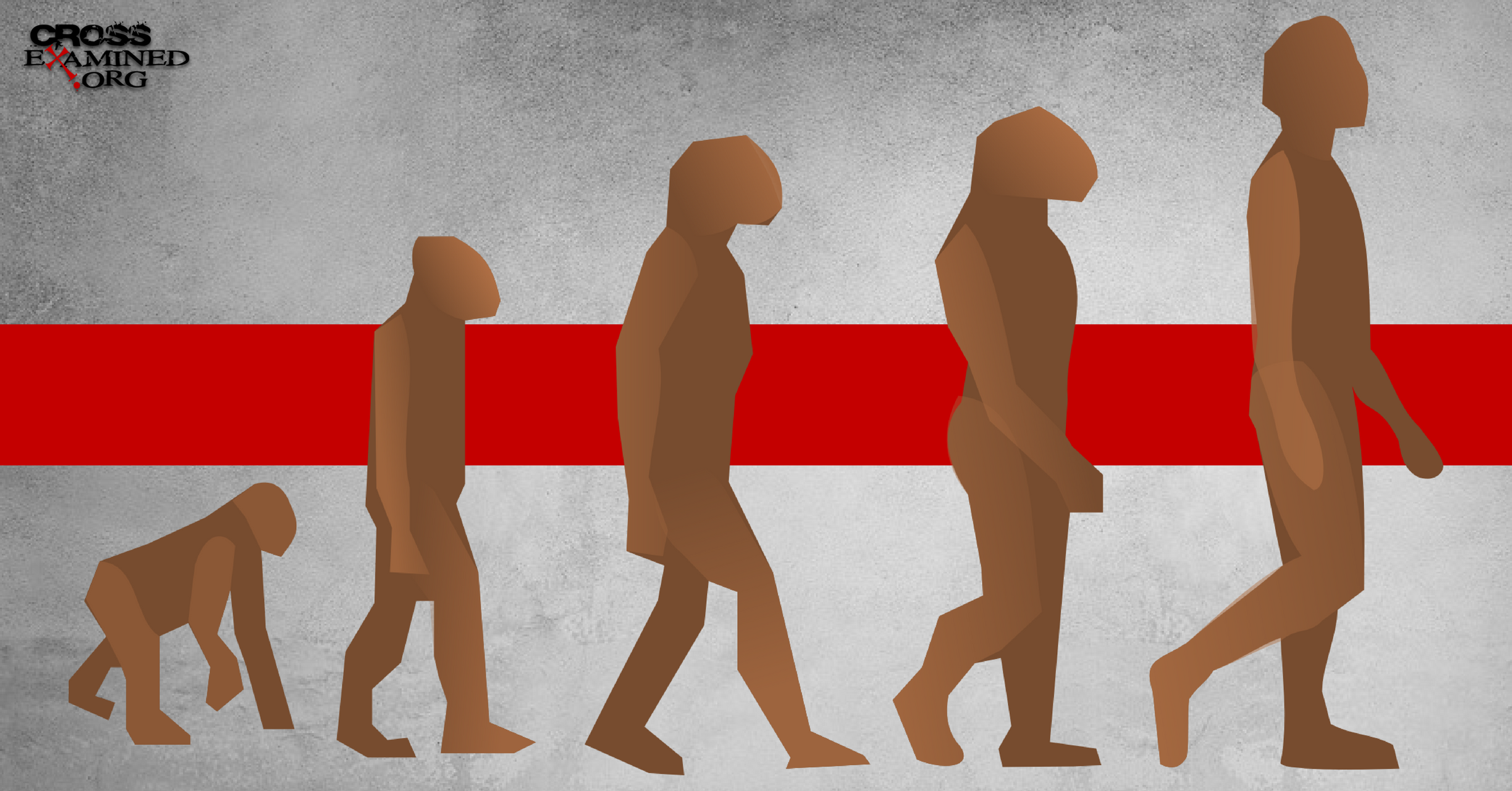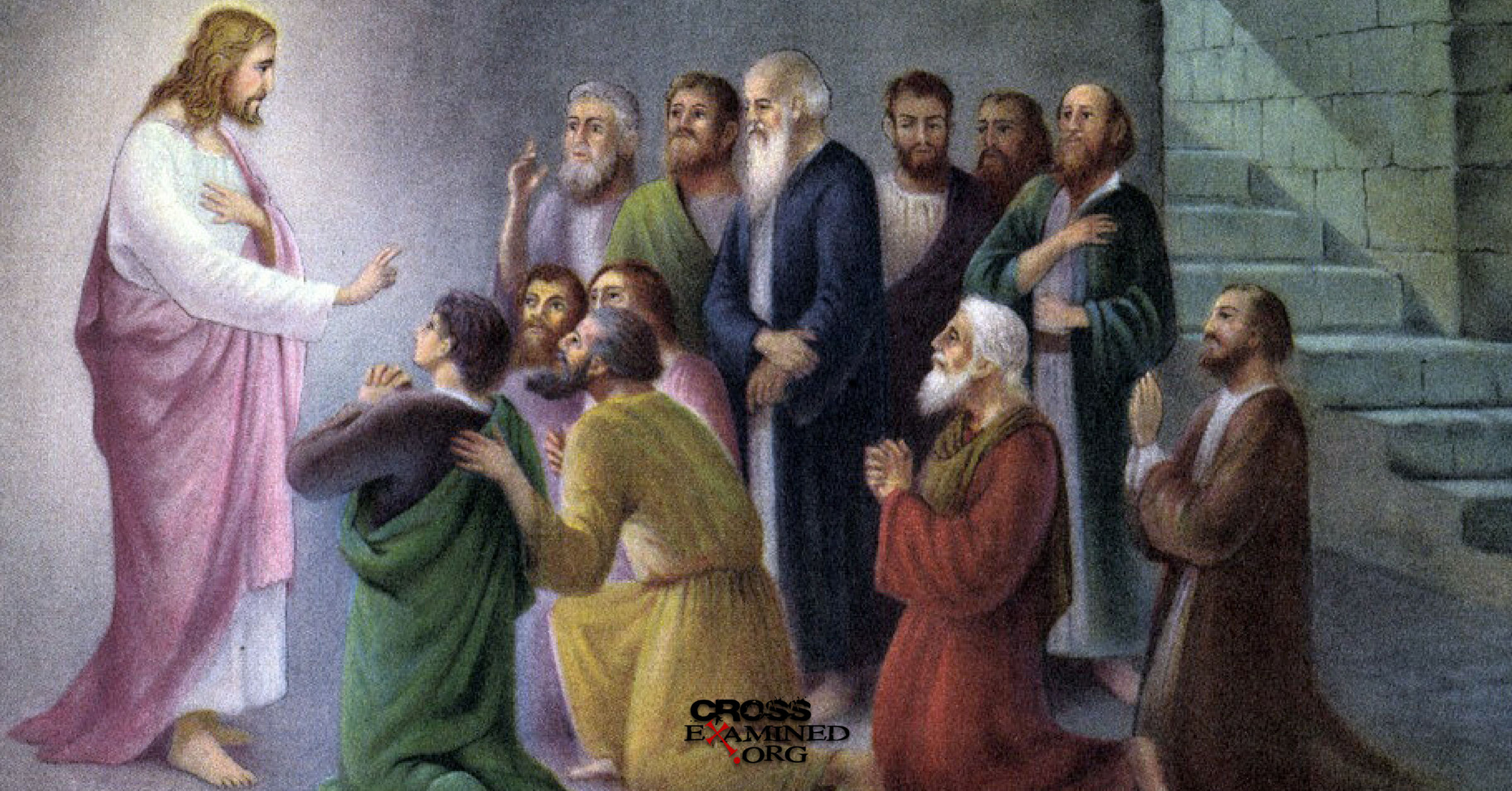by Evan Minton
This is part 5 in a series of blog posts detailing the wealth of historical evidence for the resurrection of Jesus. In the last 2 parts of this blog post series, we saw that the evidence that Jesus died by Roman crucifixion is overwhelming to the point that even atheist historians say that it’s an indisputable fact. Then, we saw 10 pieces of historical evidence pointing to the reality of Jesus’ empty tomb which was found by a group of His women followers the Sunday following His execution.
However, if we just stopped there, we wouldn’t have enough evidence to justifiably infer that Christ had gloriously returned to life. After all, an empty tomb by itself, says nothing. An empty tomb can be explained in a dozen different ways. But, Jesus’ death by crucifixion and His empty tomb aren’t the only minimal facts in need of explanation. The minimal facts in need of explanation are:
1: Jesus died by crucifixion.
2: His tomb was found empty the following Sunday morning.
3: The 12 Disciples Believed The Risen Jesus Appeared To Them
4: A Church Persecutor named Saul Of Tarsus converted on the basis of what he believed to be an appearance of the risen Jesus. And
5: A Skeptic named James converted on the basis of what he believed to be an appearance of the risen Jesus.
In this blog post, we will look at that third minimal fact. There is evidence that Jesus’ 12 disciples had experiences that they perceived as postmortem appearances of the risen Jesus.
Reason 1: The Early Creed Cited In 1 Corinthians 15.
The first piece of evidence in favor of postmortem appearances I want to look at is Paul’s list of appearances in 1 Corinthians 15. Most scholars of all theological stripes agree that Paul is citing an early creed in verses 3-8 and that this creed dates to within five years of the crucifixion of Jesus. They also believe that Paul received this creed from the apostles Peter and James just a few years after his conversion. If these scholars are right, this provides us with powerful evidence that the disciples experienced postmortem appearances of Jesus. But what does the creed say? How do we know it’s a creed? How do we know it dates to within five years of the crucifixion and how do we know Paul got it from Peter and James? Let’s look at the reasons why historians have reached these conclusions.
This is what the creed says: “For what I received I passed on to you as of first importance: that Christ died for our sins according to the Scriptures, that he was buried, that he was raised on the third day according to the Scriptures, and that he appeared to Cephas, and then to the Twelve. After that, he appeared to more than five hundred of the brothers and sisters at the same time, most of whom are still living, though some have fallen asleep. Then he appeared to James, then to all the apostles, and last, of all he appeared to me also, as to one abnormally born.” – 1 Corinthians 15:3-8
How do we know that this a creed? Maybe this just doctrine that Paul is teaching in his own words. Scholars have come to believe that this is a creed on the basis of the following reasons:
1: Paul Alerts Us That He’s Not Writing In His Own Hand Here.
In verse 3, Paul says outright that his words are not his own. He writes “For what I received, I passed on to you as of first importance.” Paul essentially says “I received this information from someone else. I received it from someone else. It’s not a list of things I came up with. Now, I’m going to pass on what I’ve received to you.” So, he’s outright telling us that the information he’s about to cite is something he himself received and is about to pass on to his readers. Additionally, “received” and “passed on” were typical terms used by rabbis who were passing along holy tradition.
2: The Language In Verses 4-7 Are Non-Pauline
Scholars have pointed out that wording of verses 6-7 of 1 Corinthians 15 is not characteristic of Paul. It’s not the way he usually writes. The word choice and grammatical style in this passage are unique to the Pauline epistles. “The Twelve,” “The Third Day,” “He was raised,” and the calling of Peter by his Aramaic name, “Cephas.” These are not phrases Paul is known to use. This implies that Paul is quoting something rather than teaching resurrection facts in his own words.
3: Parallelism Is Apparent In The Text.
Parallelism is a type of wording that was commonly found in oral traditions. The purpose of parallelism was to aid memorization. Parallelism involves writing several lines that go by the pattern of the first line being long followed by a short line followed by another long line and then another short line. Long sentence, short sentence, long sentence, short sentence. When you examine 1 Corinthians 15, this is exactly what you find.
“Christ died for our sins according to the Scriptures,” (long)
“and that He was buried” (short)
“and that He was raised on the third day in accordance with the scriptures” (long)
“and that He appeared to Cephas, then to the twelve…” (short)
“After that, he appeared to more than 500 brothers and sisters at the same time, most of
whom are still living, though some have fallen asleep.” (long)
4: The Repeated Use Of The Phrase “And That” Suggests This Is A Creed
Just as Parallelism was a wording style to make memorization of creeds easier, putting a common repetitive phrase in creeds also helped aid memorization. In this case, the repetitive phrase is “and that.” Depending on the English translation, you’ll sometimes just see the word “that,” but “and that” is what’s found in the Greek.
“and that he was buried, and that he was raised on the third day according to the Scriptures, and that he appeared to Cephas, and then to the Twelve.”
For these reasons, we have good grounds for affirming that the material cited in verses 4-7 are part of a creed. Paul received the creed somewhere and then proceeded to cite it to his Corinthian readers. What this means is that the material in 1 Corinthians 15:4-7 predates the actual writing of 1 Corinthians, which virtually all scholars date to around 55 A.D.
But how much earlier does this material date? Well, first of all, it certainly has to predate Paul’s first visit to the Corinthian church. Why? Because in verse 3, he uses the past tense “I passed on to you.” “For what I received, I passed on to you.” In the latter part of that sentence, Paul uses the past tense of “pass.” This implies that the information he’s about to cite in his epistle is information that he already cited to the Corinthians. And since he “received” this creed from someone else, this means the creed predates even Paul’s first visit there.
If this were as far back as we could go, it would still be extremely early information since the creedal data would date no later than 20 years after Jesus’ death.
But, as I said earlier in this blog post, most scholars believe that Paul got this creed directly from the apostles Peter and James, just five years after his conversion. In Galatians 1, Paul is recounting his conversion from skepticism. He describes how he persecuted the church (verses 13-14) that God revealed his son to him (verses 15-16), and then he says that he went away into Arabia and then went to Damascus (verse 17). Paul then writes “Then after three years, I went up to Jerusalem to get acquainted with Cephas and stayed with him fifteen days. I saw none of the other apostles—only James, the Lord’s brother.” (verses 18-19). This seems like the most likely place and time for Paul to have received the 1 Cor. 15 creed. First of all, two of the explicitly named individuals that appear in the creed (Peter and James) are also the two individuals Paul was talking to. Secondly, As New Testament Historian Dr. Gary Habermas pointed out; “Paul’s use of the verb historesai (1:18), is a term that indicates the investigation of a topic.[1] The immediate context both before and after reveals this subject matter: Paul was inquiring concerning the nature of the Gospel proclamation (Gal. 1:11-2:10), of which Jesus’ resurrection was the center (1 Cor. 15:3-4, 14, 17; Gal. 1:11, 16).”[2]
These seem like very good indications that this is indeed when and where Paul received the creed. In that case, the information in the creed dates to within just a few years of Jesus’ death! By the principle of early attestation, this makes 1 Corinthians 15:3-8 extremely reliable material. This is because there was no time whatsoever for legend or embellishment to creep in. The apostles were proclaiming that Christ rose from the dead within decades of His crucifixion!
The creed cited in 1 Corinthians 15 dates back so early, well within the lifetimes of the eyewitnesses, that anyone curious about whether or not Paul was telling the truth could have traveled over to Jerusalem and interviewed the people mentioned in the creed to see if they really did believe Jesus appeared to them. If Paul were lying about these people and they really hadn’t seen Jesus, the cat would have been out of the bag, and the resurrection would have been exposed as a falsehood. Given how fragile a faux resurrection would be in this case, the best explanation is that the twelve disciples, James, and 500 people actually did have postmortem Jesus experiences.
In fact, some have argued that Paul is essentially daring the Corinthians to interview these people if they are in doubt by mentioning that “some of them are still living, though some have fallen asleep.”[3] It’s as if Paul is saying “If you don’t believe that Jesus appeared to these individuals, go talk to them yourselves! Some of them have died, but others are still around to affirm what I’ve said.” That’s a pretty gutsy move on Paul’s part if these people hadn’t actually witnessed the risen Jesus. It could be so easily falsified, so easily undermined. The best explanation is that Paul’s creed was telling the truth.
Reason 2: Paul Had Direct Contact With The Twelve Disciples And Affirmed That They Claimed Jesus Rose From The Dead
As I said earlier, most scholars believe Paul got the 1 Cor 15 creed from Peter and James when he visited with them just a few years after his conversion, and I gave some of the reasons why scholars have come to those conclusions. But let’s say you disagree with the scholars. Let’s say you don’t think that the two arguments which are given in favor of a Paul receiving the creed during the trip mentioned in Galatians 1:18-20 are sufficient. Nevertheless, the creed still dates to no later than 50 A.D, just 20 years after the resurrection. The creed could have been received two years or 20 years, but no earlier and no later. So my arguments above still stand that this is an early source within the lifetimes of the eyewitnesses who could have falsified the postmortem appearances if they hadn’t occurred.
Secondly, even if Paul didn’t receive the creed in the Galatians 1 trip, we still know that he had firsthand contact with the original twelve disciples and were therefore in the perfect position to know what they believed.
Paul makes two trips to Jerusalem. The first trip occurs five years after his conversion (Galatians 1:18-20), and the second one takes place more than 14 years after (Galatians 2:1-2). Paul makes two trips, and he’s there at +5 years and +18 years after the cross. Both trips are very early, and he talks to the eyewitnesses. What are they discussing? The gospel. In 2:2 he specifically says “I went in response to a revelation and, meeting privately with those esteemed as leaders, I presented to them the gospel that I preach among the Gentiles. I wanted to be sure I was not running and had not been running my race in vain.” In other words, Paul is essentially saying “I just wanted to double check and make sure that I’m preaching the same message as my fellow apostles are. I just want to be absolutely sure that we’re on the same page and that I’m not wasting my time here. I gave them the gospel I preached and wanted to cross-reference it with the one they preach.” What was the result of such an inquiry? Paul says in 2:6 “They added nothing to my message.” Then he said “On the contrary, they recognized that I had been entrusted with the task of preaching the gospel to the uncircumcised, just as Peter had been to the circumcised. For God, who was at work in Peter as an apostle to the circumcised, was also at work in me as an apostle to the Gentiles. James, Cephas, and John, those esteemed as pillars, gave Barnabas and me the right hand of fellowship when they recognized the grace given to me. They agreed that we should go to the Gentiles and they to the circumcised.” (verses 7-10)
Probably the best thing Paul contributes to our case is interviewing the other eyewitnesses and giving us the data. Paul said that he and the other apostles preached the same message. In Galatians 1 and 2, he’s talking with the twelve disciples and in Galatians 2:6-10, he affirms that what he’s teaching is what they’re teaching. If the disciples were not claiming that Christ had risen from the dead and had appeared to them that would not be the case. Also, in 1 Corinthians 15:11, just after citing the creed, he basically says “I don’t care if you go to them, I don’t care if you go to me, we are preaching the same message about Jesus’ appearances.”
Reason 3: The Disciples Of The Disciples Affirmed That They Preached Jesus’ Resurrection
The early church fathers lived and wrote in the first, second, third, and fourth centuries.
When you investigate the writings of these guys, you find that some of them had physical contact with the apostles. Given this fact, just as we can trace the disciples’ teachings back to them through Paul, we can trace the teachings of the disciples back to them through the church fathers!
The early church father Clement (c. 30– 100) wrote to the Corinthian church in 95 AD. Around 185, Irenaeus gave us some extra info about this Corinthian epistle. Irenaeus wrote: “Clement was allotted the bishopric. This man, as he had seen the blessed apostles, and had been conversant with them, might be said to have the preaching of the apostles still echoing, and their traditions before his eyes. Nor was he alone, for there were many still remaining who had received instructions from the apostles. In the time of this Clement, no small dissension having occurred among the brothers at Corinth, the Church in Rome dispatched a most powerful letter to the Corinthians.”[4] Around 200, the African church father, Tertullian wrote, “For this is the manner in which the apostolic churches transmit their registers: as the church of Smyrna, which records that Polycarp was placed therein by John; as also the church of Rome, which makes Clement to have been ordained in like manner by Peter.”[5] According to Irenaeus and Tertullian, Clement engaged in fellowship with the apostles. Clement writes of their belief in the resurrection thusly; “Therefore, having received orders and complete certainty caused by the resurrection of our Lord Jesus Christ and believing in the Word of God, they went with the Holy Spirit’s certainty, preaching the good news that the kingdom of God is about to come.”[6] Clement said that the apostles believed in the resurrection of Jesus! If he knew the apostles (as Irenaeus and Tertullian say he did), Clement would be in the best position to know whether or not they were truly teaching that Christ got out of His grave. Irenaeus wrote that Polycarp (c. 69– c. 155) knew the disciples. He said: “But Polycarp also was not only instructed by apostles, and conversed with many who had seen Christ, but was also, by apostles in Asia, appointed bishop of the Church in Smyrna, whom I also saw in my early youth, for he tarried [on earth] a very long time, and, when a very old man, gloriously and most nobly suffering martyrdom, departed this life, having always taught the things which he had learned from the apostles.”[7]
Irenaeus wrote a letter to a person named Florinius. In this letter, Irenaeus also talked about Polycarp. Unfortunately, the letter that Irenaeus wrote to Florinius was annihilated by the sands of time, but while the letter itself is gone, the early church historian Eusebius quoted a portion from it; “When I was still a boy I saw you in Lower Asia with Polycarp when you had high status at the imperial court and wanted to gain his favor. I remember events from those days more clearly than those that happened recently… so that I can even picture the place where the blessed Polycarp sat and conversed, his comings and goings, his character, his personal appearance, his discourses to the crowds, and how he reported his discussions with John and others who had seen the Lord. He recalled their very words, what they reported about the Lord and his miracles and his teaching— things that Polycarp had heard directly from eyewitnesses of the Word of life and reported in full harmony with Scripture.”[8]
Given the fact that Polycarp knew the apostles personally, he would have been in the best position to know what the disciples believed. Polycarp mentioned the resurrection 5 times in his letter to the church in Phillipi.
So, through Polycarp and Clement, we can trace the claims of the resurrection right back to the disciples themselves.
“But!” the skeptic may object “Just because the disciples were claiming that Jesus rose from the dead, that doesn’t mean that He actually did. Maybe the disciples were making the whole thing up! Maybe they were lying about having seen the risen Jesus”. I have never found any attempt by non-Christians to make the disciples out to be bald face liars very convincing. This is because church history is unanimous in claiming that all of the disciples (with the exception of John) died a brutal martyrs death. Why would they die for a lie? Why would they die for something that they knew wasn’t true? I could believe someone would die for a lie that they believed was true, but I can’t bring myself to believe that someone would willingly die for something they knew was false.
Some of the sources that record the disciples’ martyrdoms are:
*Clement Of Rome – reported sufferings and martyrdoms of Peter and Paul.[9]
*Polycarp – Reported the sufferings and martyrdom of the disciples in general.[10]
*Tertullian – Reported the martyrdom of Peter and Paul (and specifically says that Peter was crucified and that Nero beheaded Paul).[11]
*Book Of Acts — Reports martyrdom of James the son of Zebedee (beheaded by Herod Agrippa).[12]
*Eusebius — Says in his Ecclesiastical History that all of the apostles were martyred, and says that Peter was crucified upside down.
At this point, skeptics usually respond by saying “Well that doesn’t prove anything. Other religions have martyrs. Does that mean their religious beliefs are true? Think of the terrorists who flew planes into the world trade center, for example. Does the fact that these terrorists were willing to die for their religious beliefs prove that Islam is true?” This rebuttal simply shows that the objector has misunderstood the argument. Neither I nor any Christian Apologist would argue that because the disciples died martyrs death that this proves that Jesus rose from the dead. What we’re claiming is that their willingness to suffer and die proves that they sincerely believed what they were claiming rather than trying to pull the wool over peoples’ eyes. No one would say the terrorists who took down the world trade center consciously thought that Islam was false. If they believed Islam was false, those 3,000 people would still be alive today. Martyrdom doesn’t prove a claim is true; it simply proves sincerity on the part of the one making the claim. Since almost all of the disciples were willing to die (some in horrible, slow, torturous, and gruesome ways), only an idiot would continue to say “Nah, they were simply spouting bald face lies.” I mean, can you imagine St. Peter lying upside down on the cross, having been beaten to a pulp, having had nails driven through his hands and feet, and bleeding and suffocating thinking to himself “Jesus is dead. He didn’t really rise. We stole his body and hid it at the bottom of a lake. He’s still dead, and soon I will be too! This torture was worth it!”
It’s also worthy to note that the apostles differ from modern day martyrs in that they were in a unique position to know for sure whether or not Jesus rose from the dead. The resurrection proclamations originated with them. If it’s made up, then they’re the ones who made it up. And yet, they died horribly for making this claim. Most martyrs, including Christian martyrs of today, die on the basis of secondary evidence (e.g. the minimal facts approach) or no evidence (blind faith). The disciples came to believe Jesus rose from the dead because they claimed that He appeared to them personally, that is, primary evidence! They claimed to have seen him! This places their martyrdom in a totally separate category than all of the ones you read about in “Voice Of The Martyrs.”
What all of this means is that through Paul and the church fathers Polycarp and Clement, we can affirm that the twelve disciples of Jesus claimed Jesus rose from the dead and appeared to them. Through the fact that they all died brutal deaths when they could have saved themselves by recanting means that they really believed what they were claiming.
Now, just put yourself in their shoes for a moment. What could make you believe that someone you loved rose from the dead and made you so confident of this, that you would be willing to die for proclaiming that? I know how I would answer this question: seeing him with my own two eyes.
Reason 4: The Postmortem Appearances To The Disciples Are Multiply Attested
The synoptic gospels (Luke 24:36-43), The Gospel of John (20:19-20), and the 1 Corinthians 15 creed all mention postmortem appearances to the twelve disciples. It is highly unlikely that three independent sources would all make up the same lie, therefore, on the basis of the principle of multiple attestations, we have good reason to believe that the disciples saw the risen Christ.
Reason 5: Doubting Thomas Gives Us Reason Not To Doubt
John 20:24-29 records the postmortem appearance to Thomas. All of the other disciples had seen Jesus alive and were rejoicing at his resurrection, but Thomas was so skeptical of the resurrection that he said that he wouldn’t believe it until he placed his fingers in Jesus’ hands and side. Verses later, we read that Jesus appeared to Thomas and Thomas was convinced. However, why would the writer of the gospel of John depict Thomas in such a bad light? John 20 doesn’t depict one of the apostles in a very good light by making him out to be a hard-headed skeptic, disbelieving the testimony of the rest of the apostles. It seems to me that Thomas’ skepticism is unlikely to be a Christian invention on the basis of the principle of embarrassment. Therefore, this passage is very likely to be telling us a historical fact.
Now, perhaps I can play devil’s advocate and propose an objection to this particular point: maybe the reason John puts Thomas in a bad light is that he disliked Thomas. Perhaps, later on, they got into heated arguments causing a rift between them. John 20’s depiction of Thomas, therefore, is slander. However, this is a possibility that has no historical evidence behind it. If the skeptic wants to undermine this fifth argument, he’ll have to do more than just propose an alternative possibility. He’ll have to back up that possibility with evidence. We have no reason to believe that the writer of John’s gospel (be he the apostle John or whoever) had any dislike of St. Thomas. No church historian hints at any tension between the apostle John and Thomas, nor do any of Paul’s writings indicate that such tension exists. We have no reason to believe that John had anything but the utmost respect for Thomas as he did the other apostles.
Reason 6: Brave Women, Cowardly Disciples
Before the appearance to St. Thomas, the gospel of John reports that the risen Jesus appeared to Mary Magdalene before He appeared to anyone else (John 20:11-17), and Jesus told her to tell the twelve disciples that He had risen (verse 18). We then read that Mary went and told the disciples what Jesus told her to tell them, but we also read in verse 19 that they were hiding in fear of the Jews!
Now, the principle of embarrassment has got a lot to go on here. First of all, remember that women were second-class citizens back in that culture and their testimony was so worthless that they weren’t even permitted to serve as witnesses in a Jewish court of law. In light of this fact, it is astonishing that not only is a woman the first to witness the empty tomb, but the first to see the risen Christ as well! If John were simply making this narrative up, wouldn’t he have had a man be the first witness of the risen Christ? Oh, no, but he couldn’t do that because he wrote that the men were locked up somewhere hiding in fear in the Jewish leadership. This is also a shocking thing to mention if you’re just making up a narrative. Why would John make the men (which would include John himself if he’s really the author of this book) be hiding like a bunch of wusses and write that only a woman follower of Christ had the guts to go down to the tomb? This paints the disciples in an embarrassing light and exalts a person who, back then, had low social status. By the principle of embarrassment, we can conclude that this account is historical.
But it gets even better! For the specific words, Jesus said to Mary were “Go instead to my brothers and tell them, ‘I am ascending to my Father and your Father, to my God and your God.’” (verse 17). John’s gospel puts more emphasis on the deity of Christ than any of the other 3, yet he says that God the father is “His God.” When you’ve told your readers from verse 1 that Jesus is God, it’s odd to have him say that The Father is His God, as though Jesus is somehow an inferior being. If Jesus has a God, how can he be God? Now, just like with “Why have you forsaken me” which we examined in part 3 of this series, I think a plausible explanation for this sentence can be given. I don’t think Jesus’ words here in any way diminish His deity. However, the point here is that they seem to. Therefore, rather than having to go through the trouble of explaining this saying, it would have been much easier for John if he had just omitted that part altogether. The fact that it’s in here gives us reason to believe that John is making this up, this is actually what Miss Magdalene heard the postmortem Jesus say. Once again, the principle of embarrassment gives us reason to believe this account is historical.
The principle of embarrassment applies to John 20 in so many different ways:
1: A Woman is the first to see the risen Jesus. She sees him before any of the twelve do.
2: The disciples are hiding like cowards because they’re afraid the big bad Pharisees are going to get them.
3: Jesus calls The Father “My God” which prima facie suggests he isn’t God, in a gospel that emphasized His divinity since literally verse 1.
This gives us yet another reason to believe that the 12 disciples had a postmortem appearance of Jesus. Again, you can try to explain this postmortem appearance by appeal to a naturalistic theory if you want to, but the fact that they believed they saw Jesus post-crucifixion seems well grounded historically.
Conclusion
We’ve seen that as with Jesus’ death by crucifixion and Jesus’ empty tomb, there is an astounding amount of historical evidence for the postmortem appearances to the disciples. Now, you can try to explain these appearances in some way other than to say Jesus really rose from the dead, but you have no grounds on which to deny that the disciples really believed they saw Him post-crucifixion.
As the agnostic historian, Bart Ehrman said “We can say with complete certainty [emphasis added] that some of his disciples at some later time insisted that he soon appeared to them. . . . Historians, of course, have no difficulty whatsoever speaking about the belief in Jesus’ resurrection, since it is a matter of public record”[13]
The atheist historian Gerd Ludemann put it this way: “It may be taken as historically certain that Peter and the disciples had experiences after Jesus’ death in which he appeared to them as the risen Christ.”[14] For a historian, who is an atheist no less, to say that something like this is historically certain speaks volumes!
The atheist scholar E.P Sanders said “That Jesus’ followers (and later Paul) had resurrection experiences is, in my judgment, a fact. What the reality was that gave rise to the experiences I do not know.”[15]
Do we have enough evidence now to infer that Jesus rose from the dead? Actually, I think we do. In my experience, skeptics have a hard time coming up with a naturalistic theory that can account for both Jesus’ empty tomb and Jesus’ postmortem appearances to the disciples. However, I think we can make our case for the resurrection even stronger by examing postmortem appearances of Jesus to two specific individuals: Paul and James. It is these appearances that we will examine in the next blog post.
Notes
[1] Several studies on the meaning of historesai in Gal. 1:18 have reached similar conclusions. See William Farmer, “Peter and Paul, and the Tradition Concerning `The Lord’s Supper’ in I Cor. 11:23-25,”Criswell Theological Review, Vol. 2 (1987), 122-130, in particular, and 135-138 for an apostolic, Petrine source for the pre-Pauline tradition. Also helpful is an older but still authoritative study by G.D. Kilpatrick, “Galatians 1:18 historesai Kephan” in New Testament Essays: Studies in Memory of Thomas Walter Manson, A.J.B. Higgins, editor (Manchester: Manchester University, 1959), 144-149. Paul Barnett reports that this same term appears in Herodotus, Polybius, and Plutarch, for whom it meant to inquire (41). Similar ideas are contained in J. Dore, “La Resurrection de Jesus: A L’Epreuve du Discours Theologique,” Recherches de Science Religieuse, Vol. 65 (1977), 291, endnote 1
[2] Gary Habermas: “Experiences of the Risen Jesus: The Foundational Historical Issue in the Early Proclamation of the Resurrection,” Originally published in Dialog: A Journal of Theology, Vol. 45; No. 3 (Fall, 2006), pp. 288-297; published by Blackwell Publishing, UK.
[3] See the online article “Authenticating The Resurrection Of Jesus: The Corinthian Creed”, May 3rd, 2012, http://www.thefaithexplained.com/blog/authenticating-the-resurrection-of-jesus-the-corinthian-creed/
[4] Irenaeus, Against Heresies, 3.3.3, c. 185. Taken from A. Roberts, J. Donaldson, and A. C. Coxe, eds. and trans., The Ante-Nicene Fathers: Translations of the Writings of the Fathers Down to A.D. 325 (Oak Harbor, Ore.: Logos Research Systems, 1997).
[5] Tertullian, The Prescription Against Heretics, 32. In ibid.
[6] Irenaeus, Against Heresies, 3.3.4.
[7] Ibid.
[8] Irenaeus, To Florinus, cited by the fourth-century church historian, Eusebius, who regarded Irenaeus as a reliable source (Ecclesiastical History 5.20). See To Florinus in Roberts, Donaldson, and Coxe, eds. and trans., The Ante-Nicene Fathers. See Eusebius, Eusebius: The Church History, Paul L. Maier, ed. and trans. (Grand Rapids: Kregel, 1999), 195–96.
[9] “Because of envy and jealousy, the greatest and most righteous pillars have been persecuted and contended unto death. Let us set the good apostles before our eyes. Peter, who because of unrighteous envy endured, not one or two, but many afflictions, and having borne witness went to the due glorious place. Because of envy and rivalries, steadfast Paul pointed to the prize. Seven times chained, exiled, stoned, having become a preacher both in the East and in the West, he received honor fitting of his faith, having taught righteousness to the whole world, unto the boundary on which the sun sets; having testified in the presence of the leaders. Thus he was freed from the world and went to the holy place. He became a great example of steadfastness.” – Clement Of Rome, First Clement 5: 2– 7.
[10] “They are in the place due them with the Lord, in association with him also they suffered together. For they did not love the present age…” – Polycarp, “To The Philippians,” 9.2
[11] “That Paul is beheaded has been written in their own blood. And if a heretic wishes his confidence to rest upon a public record, the archives of the empire will speak, as would the stones of Jerusalem. We read the lives of the Caesars: At Rome, Nero was the first who stained with blood the rising faith. Then is Peter girt by another, when he is made fast to the cross. Then does Paul obtain a birth suited to Roman citizenship, when in Rome he springs to life again ennobled by martyrdom.” – Tertullian.
[12] Acts 12:1-2
[13] Bart Ehrman, Jesus: Apocalyptic Prophet of the New Millennium (New York: Oxford University, 1999), 230-231.
[14] Gerd Lüdemann, What Really Happened to Jesus? Trans. John Bowden (Louisville, Kent.: Westminster John Knox Press, 1995), p. 80.
[15] E.P. Sanders, The Historical Figure of Jesus, page 280
Original Blog Source: http://bit.ly/2I4Kp12










